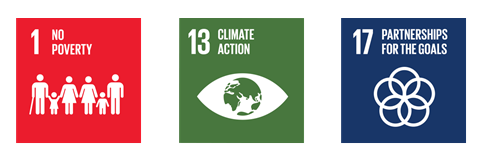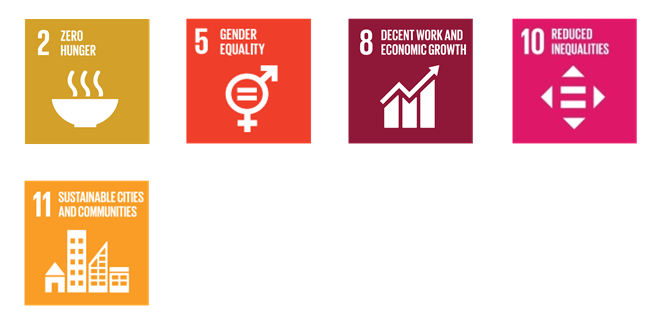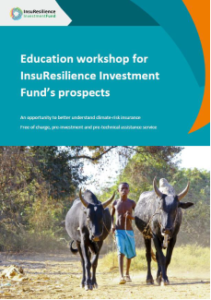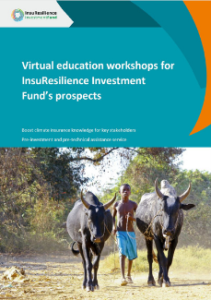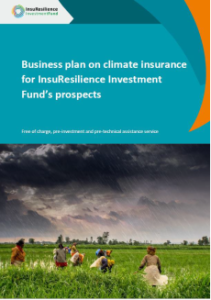We are delighted that you are interested in our investment products and product News.
You hereby confirm and acknowledge that you are acting in your capacity as an Institutional Client or representing an Institutional Client.
Governing law and jurisdiction
User access, the use of this website, the Terms of Use and any legal documents including these legal provisions are subject to Swiss law. Any conflict of law provisions shall not apply. The exclusive place of jurisdiction is Zurich, Switzerland.
Client Profile
The product information and other documents provided on this website are intended exclusively for users with the specified client profile. If you select the wrong client profile, this may result in access to information and documents of investment products which you are not authorized to access. BlueOrchard Finance Ltd. (“BOF”) cannot be held liable for any damages or claims as a result of selecting the wrong client profile.
Art. 4 of the Federal Act on Financial Services of 15 June 2018 (“FinSA”) subdivides clients into private, professional and institutional clients. This classification is based on a person’s financial circumstances or level of knowledge, experience and financial expertise, the legally defined size of the company or the existence of a professional treasury. The term professional client (“professional client”) used in this section includes professional as well as institutional clients under FinSA.
The revised Federal Act on Collective Investment Schemes of 23 June 2006 (“CISA”) defines in its Art. 10 and 10(3ter) qualified investors (“Qualified Investor”). Art. 4(3) FinSA lists in detail the clients that fall under the category of professional clients, which is based on (and corresponds by and large to) the list of Qualified Investors pursuant to Art. 10(3) CISA. For further information about client classification kindly consult the FINSA Client Information Brochure.
If in doubt, please select “Private Client”. Generally, professional clients and Qualified Investors are those who have appropriate knowledge, expertise and experience in the financial market. Please study carefully if this applies to you and if it does, selecting the client classification “Qualified Investor” means that you represent and warrant to us that you fulfill the requirements and opt to be treated as a Qualified Investor and are not acting in a private client capacity. This will mean that you waive certain consumer protection rights you would otherwise have.
No offer or solicitation, recommendation or advice
The information on this website is not legally binding. No information or documents published on this website constitutes a solicitation, an offer or a recommendation to buy or sell any investment products or other financial instruments, to execute any transactions, or to conclude any legal act of any kind whatsoever. The information on this website is for information purposes only and solely product related. It does not take into account any personal circumstances and does not qualify as general or personal investment recommendation or advice. BOF does not provide investment, legal, tax or other advice through this website and nothing herein should be construed as such advice.
Consequently, one cannot rely on the content of this website when making any investment or other decision. Investment or other decisions should be made solely based on the relevant legal investment product documents (prospectus/offering memorandum, fund contract/articles, key information documents, financial reports) of the respective investment product.
Each person must consult their own financial, tax and legal advisor in order to clarify the legal and tax consequences of an investment and to check how well the investment products match their own risk profile and their specific needs.
Access and restrictions
Some information contained in this website is intended for exclusive use by professional clients as defined under FinSA and by Qualified Investors as defined under CISA, which have their residence or registered office in Switzerland. Such information is not directed to private clients as defined by FinSA. Consequently, private clients should abstain from accessing such information. Prospective clients whose place of residence or registered office is outside Switzerland are asked to clarify with their legal advisor or other qualified expert whether they are permitted to invest under the legislation applicable to them based on the selected type of client and country of residence or registered office.
This website is not intended for natural persons and legal entities subject to legislation which prohibits access to the website or investment products published (due to the user’s nationality or domicile/registered offices or for other reasons). Persons subject to such restrictions are not permitted to access the website.
In particular, none of investment products mentioned on this website constitute securities registered under the Securities Act of 1933 (of the United States of America) and they may, unless explicitly stated otherwise, not be offered, sold or delivered to US citizens or persons resident or incorporated in the US and/or other natural or legal persons whose income and/or returns, regardless of origin, are subject to US income tax, as well as persons who are considered to be US persons pursuant to Regulation S of the U.S. Securities Act of 1933 and/or the U.S. Commodity Exchange Act, in each case as amended from time to time. Nothing on this website shall be construed under any circumstances as a solicitation of a US Person (as defined in applicable law/regulation) to purchase any BOF investment product.
No liability or warranty
All data and financial information provided is on an unaudited and “as is” basis. BOF takes due professional care in preparing the information published on the website. However, BOF assumes no warranty or liability for the currency, correctness, accuracy or completeness of the information published on the website. BOF reserves the right to update, amend or delete without notice, at any time, information published on the website. The opinions and assessments expressed on the website reflect the opinion of BOF at the time of publication and do not constitute a general or specific legal, tax or other recommendation.
Insofar as legally permissible, BOF excludes any and all liability for direct and/or indirect damages, lost profits or costs arising from use of (whether such use if proper or improper), or access to this website (or the inability to access or use this website). This exclusion of liability shall also apply to all damages that can be ascribed to third-party tampering with the website. BOF also reject any liability for third-party manipulation of their IT system.
Performance
Past performance is no indicator of future development and does not offer any guarantee for future returns. The performance data do not include commissions and costs incurred by clients when subscribing or redeeming fund shares. The calculation is performed in an investment product’s currency and may rise or fall as a result of exchange rate fluctuations.
Any performance data on this website represents past performance. The level of tax benefits and liabilities will depend on individual circumstances and may be subject to change in the future.
Risks of investment
All investments are associated with risks, which include the potential loss of the capital invested. The prices, values and profits of invested capital can fall and rise. Investments in foreign currencies are also subject to exchange rate fluctuations. Details regarding the risks associated with a specific investment product are described in the current product documentation, which must be read carefully before investing in any investment products displayed on this website. Furthermore, the most significant risks of investments in financial instruments are explained in the brochure “ of the Swiss Bankers Association (SBA).
Emerging markets impact investments involve a unique and substantial level of risk that is critical to understand before engaging in any prospective relationship with BOF and its various managed or advised investment products. Investments in emerging markets, particularly those involving foreign currencies, may present significant additional risk and in all cases the risks implicated in this disclaimer include the risk of loss of invested capital.
Taxation
The investment products described on this website may have tax consequences. All tax treatments mentioned are those currently available at the date of publication and their value depends on the circumstances in which each individual client invests. It must be noted that the levels and bases of taxation may change, and that BOF does not provide tax advice. A potential client must consult his own tax advisor to understand the tax consequences attached to the investment products described on the website.
Fund documentation
Investment decisions should solely be made on the basis of the latest legal fund documents (such as prospectus/offering memorandum, fund contract/articles, key information documents, financial reports) of the respective fund as well as based on all other materials required by local legislation and regulations in the jurisdictions in which the relevant fund and/or sub-fund and/or specific unit classes are authorized and/or permitted for public distribution, offer or sale.
